In our farming community some old timers still remember a day before the adoption of modern industrial farming tools. As I grew up farming, I was immersed in how to best leverage these tools, profit with them and consequently lost the discipline of farming without them. Read on to understand my farming philosophy, where I am taking Chinchiolo Farming Company and get inside my mind as I embark on an exciting new direction.
Preface: The purpose of this writing is by no means intended to demonize the use of industrial farming and the tools that are used. The tools are highly effective, save time, lower costs and for the most part allow farmers to grow outstanding food for our ever growing worldwide population. For me, however, I am observing declining efficacy, and am also experiencing some of the unintended consequences of many of these tools.
Now what do I mean when I say "industrial farming tools"? Generally, I am speaking of anything that has the suffix "cide" at the end of it. Think herbicide, fungicide, pesticide - also, consider the word homicide. More specifically, I am talking about tools that significantly alter the biology on or within our farm ground.
So let's get started and let me tell a story about the use of herbicides in both our walnuts and cherries. I am a big proponent of a clean, well manicured orchard and to achieve this I had always been a stanch advocate of applying pre-emergent weed sprays in late fall or early winter. The result of this application is a clean strip under the tree rows and lasts until late spring. The center of the rows are then managed by mowing. The symmetry of this arrangement is very pleasing to the eye and over time we became very efficient at this method.
By the time late spring or early summer would roll around I would invariably have to gear up to spray the weeds that established in the strips. These weeds without competition would take off with evengencce and as I would learn later, one weed in particular had become glyphosate resistant - fleabane. When my wife and I would take our evening walks with our dog I'd always point it out - damn fleabane. To maintain a well manicured orchard I was forced to adjust and add another herbicide to mix with glyphosate to handle the fleabane and if I didn't spray it early enough it would take hold like a bush and present a battle all summer long.
I had always had a hunch that trying to control mother nature would result in a loose loose scenario and when offered the opportunity to study the effects of herbicides on soil health I jumped right in. I now know that applying herbicide after herbicide is slowly damaging the soils capacity to function. By killing the weeds I am effectively sterilizing the soil thus reducing the soils capacity to function in harmony with the needs of the orchard. Without plant life, microbial activity is minimized, the soil water holding capacity is reduced and the capacity of our orchards to produce at their genetic potential is compromised. Soil science is very complex and yet, when left to mother nature, she has an amazing capacity to balance the needs of both plant life and soil health.
So now what? Just stop weed spraying? I'm learning that it is not that easy at scale. We manage over 77 row miles and not being able to keep the strips managed is not an option. Especially in walnut orchards where the standard practice is to harvest off a clean orchard floor. We developed all of our orchards with the thought that we could spray the strips with nozzles attached to booms that hover at 18 inches off the ground. The alternative options we are considering now require mowing at just inches above the ground with berm mowers attached to our tractors. Any variation in ground elevation, exposed roots or rouge drip lines and operator skill are just a few of the challenges.

Invariably, I am going to try the berm mower and expect that I will need to not only adapt the machine, but our orchard floors as well. I conclude this story by intentionally leaving it open, and announcing the direction Chinchiolo Farming Co., Inc. is going to be biological rather than chemical or industrial farming. We are going to have to relearn some of the techniques from our forefathers and choose to work with natural systems rather than ignore or fight against them. The benefits and fulfillment of operating in this format are going to be immense and I cannot wait double down and get going!


